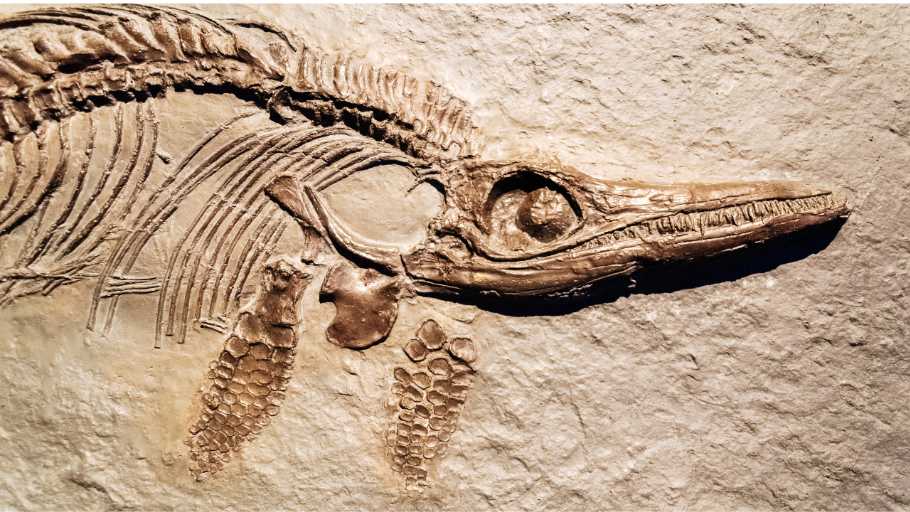I reflect on the biblical prophecy of the beast and its relevance in today’s society, highlighting the various forms it takes.
A concerned person shared with me some terrible news about a new ideology that has crept into his organization. It was anything but decent. He explained: They use the holy name in a lurid caricature and portray vile sentiments as the holy. “What is going on?” He asked.
Recently, I had a similar conversation with someone who works at the UN. He shared some news about the policies developing and what that might mean for traditional values and the very notion of life itself.
We observe the changing tide of values and the evolving view of life that seems to regard claims to truth as nothing but a relic of irrelevant years past. Many pride themselves on being informed. The old they see as useless. Naïve. Daniel’s prophecy and the Lord’s end-time messages speak to our time, too.
Daniel and the Beast
Daniel 7 writes about his vision of a “momentous beast.” The four beasts outdo each other in scariness, and the fourth, radically different, beats them all (Daniel 7:1-7). One thing clear in this biblical prophecy is that the beast grew not from above but from beneath, Daniel says, from within the great sea (v. 2). The beneath also symbolizes the earth—our families, communities, countries, society.
Many might jump to a shallow interpretation of the beasts as the four kingdoms of Babylon, Medes, Persia, and Graeco-Roman empires. There might be historical evidence to support this claim. However, it would be too superficial and consign the message of this prophecy to the cliché interpretation that makes the biblical message seem outdated and irrelevant today. But God’s Word speaks of the past, the present, and the future.

One thing is clear. The beast, as with the symbolism of the beasts in Revelation chapters 13, 17 to 19, represents powers opposed to the reign of God. Their characters reflect qualities opposed to Christ.
These powers can be individuals or groups within a system. They can also be a system whose ways radically oppose godly ways. They can be personal or as large as an entire empire. For example, Hitler and Mussolini became influential beasts of the 1940s. And Stalin was also on the Russian side of the equation.
Furthermore, beasts can be individuals in the world of business, too, and there are numerous. The most recent example is Sam Bankman-Fried, who has become the beast of the cryptocurrency world. Had he not been caught, he could have influenced many politicians in DC, including the president, to make laws that favored his empire. He is just one of many. The difference is that he is caught, and others aren’t.
Beasts are Everywhere
Beasts are everywhere—in families, relationships, churches, schools, corporate and non-profit settings, and worse, in political corridors. Nothing is as beastly, for example, as the abuse of the vulnerable and children. Nothing is more beastly than a culture of corruption and immorality when a group is willfully complicit by being silent. How does one with a human heart watch evil done in one’s circle and be comfortable with it? People suffer. Many die.
Nothing is as beastly as the genetic and surgical alteration of little children to fit the patterns of the world we imagine in our heads. Nothing is as beastly as to deprive the fundamental dignity and equality of all humans. Nothing is as beastly as to see and treat an employee as simply a tool for making money. Nothing is as beastly as to see friendship or relationships as an opportunity to exploit another.
The Ideology of the Beast
The beast is a monster; here are the reasons. It stands opposed to the basic expectations of goodness and love. Its psyche is audacious narcissism. The beast’s ambition is to be the supreme law. Its ways must be the ultimate mandate. Its custom must become a global code of conduct.
In addition, for the beast, the very idea of God or any authority that opposes its desire to become the ultimate power is the worst enemy. The beast sees power, influence, money, and dominance as proof of relevance, if not the most fundamental value. For the beast, society must do away with anything that opposes its will, be it morality, religion, spirituality, or accountability measures. If banishing the opposing reality isn’t possible, it must be re-defined to mean what the beast wills.
Moreover, the beast believes that it makes laws that others must follow. It is the lawmaker. The rest of the people must follow its orders or face the brutal consequences.
God’s Judgment of the Beast
Yet, the beast is subject to God’s judgment. This truth surprises the beast because the beast’s arrogance makes it daft to the warning signs. The beast ignores the divine compassionate handshake because compassion is seen as naiveté when arrogant pride takes center stage. The beast sees divine mercy mandates as useless.
History has repeatedly shown that beasts rise and fall, but one constant remains—God’s Word. Absolutely! The Blessed Lord articulates this truth eloquently: “Heaven and Earth will pass away, but my words will never pass away” (Luke 21:33).
The beast forgets the meaning of Daniel’s name—”God is my judge”—and yet, God’s judgment inevitably arrives. Divine judgment is a source of comfort, establishing the reign of righteousness. Good news indeed to all who believe!
Readings: Daniel 7:2-14: Luke 21:29-33
